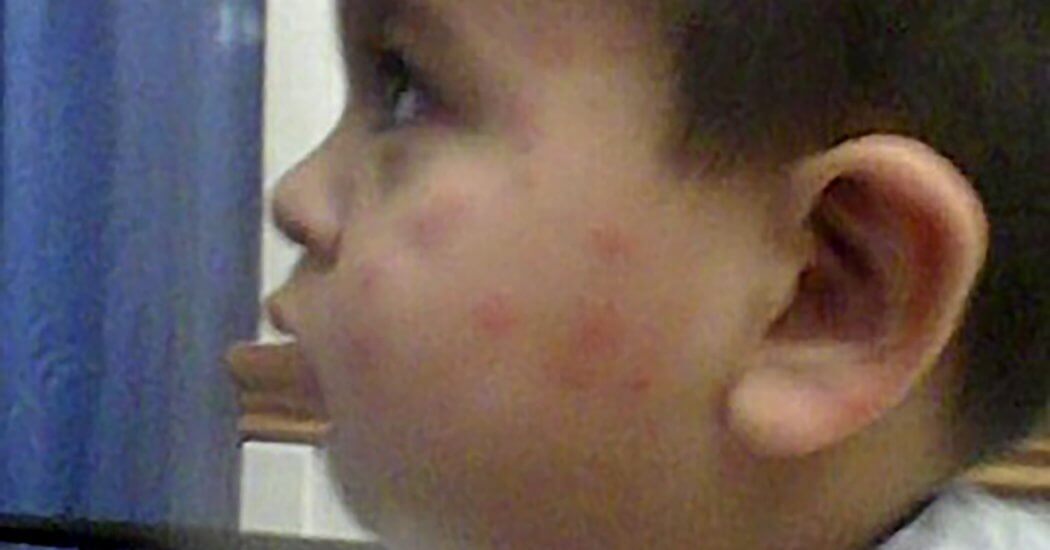
IN DEPTH
Bed bugs an itching legal subject for California landlords
[apss_share]
An Inglewood family sued their landlord, Amusement Six Apartments, for breach of warranty of habitability, emotional distress, negligence, and breach of contract after they didn't sleep tight.
Nothing can tug at the heart of a jury more than a three-year old that is covered in bed bug bites and scratches himself to permanent scarring. As if Little Jorge Jr.’s bleeding and disfigurement was not enough to incur the ire of the jury, the child’s family was instructed by apartment management to discard their furniture and sleep on the floor in the aftermath of a bed bug infestation.
Their $1.6 million-dollar payout is the largest award ever for a single family in a bed bug case and should put owners and property managers on notice that when these parasites are discovered, inaction is not an option. This litigation presents a good opportunity for us to revisit this subject.
Some Backdrop
The cohabitation of these blood-sucking creatures in hotels and apartments have reached epidemic proportions because they are easily transportable on objects and people and are highly fertile – females can lay up to 500 eggs at a time. Equal opportunity diners, bed bugs show up in squalid motels and posh apartments – unlike cockroaches, they don’t care about filth.
Aside from the medical effects of skin rashes, welts, allergic symptoms and other medical conditions that can result from these tenacious pests, they can wreak psychological havoc on their hosts – many tenants report that their encounter with bed bugs was the worst experience of their life.
Because they can pervasively take over an apartment, bed bugs have their own law that requires landlords to provide written information with specific statutory language about these pests and prescribes how to report suspected infestations to the landlord. The law also prohibits a landlord from showing or renting a dwelling that is infested with bed bugs, and further prohibits retaliatory measures against tenants who report bed bug problems.

Our analysis
After shelling out hundreds of dollars to pest control companies, many landlords look to recoup their expenses by seeking money from the tenants who are suspected of inviting the bed bugs. Let’s talk to this group for a bit.
Although the bed bug law is silent on which party is responsible for the costs of remediating the bed bug problem, this is not a riddle because well-established law already exists. As we noted in this article and several others, residential leases have an “implied warranty of habitability” that requires landlords to keep rental premises in “livable” condition for tenants. This includes keeping it free of rodents and vermin.
If the tenant is culpable for the inhabitable conditions that arise with bed bugs, in theory, the landlord can hold the tenant responsible for the costs of eradicating the bed bugs. It is analogous to a tenant breaking a window in a lobby – if it can be proved that the tenant broke the window, you can pursue legal action to recover the costs of the window replacement. Yet causation is not so cut and dry in a bed bug case – it is extremely difficult to prove the tenant is responsible for the infestation.
Perhaps the pests originated from another unit, or your maintenance man unknowingly transplanted the critters to another unit. If you have more than an inkling that the tenant is at fault for the bed bug infestation, please consult with an attorney to weigh the evidence and explore your options, as this can be tricky stuff.
Bornstein Law advises our clients that the first and foremost priority is to rid the unit of bed bugs and sort out costs after remediation is complete. If the landlord fails to take swift and proactive action, the tenant can argue they are not responsible for paying the rent because the implied warranty of habitability has been breached. Worse yet, lethargic landlords can invite a costly lawsuit, the likes of which are proliferating throughout the area.
As we’ve noted in an earlier article, this rash of lawsuits are aided by enterprising tenant attorneys that are skilled at identifying a landlord’s non-compliance with the law, and in fact, there are some attorneys that have built an entire practice around bed bug litigation, going so far as to advise afflicted clients to obtain medical documentation and collect bed bug samples.
Do it. Do it right. Do it right now.
This phrase from Spencer Wooley Kimball seems fitting for owners that have the unwelcome tenancy of bed bugs. Landlords should not only act quickly to remediate the problem but call upon pest control professionals that can guarantee the unit is clear of bed bugs.
We have found that many landlords are penny wise and a pound foolish by trying to eradicate bed bugs on their own. There are many products that purport to eliminate bed bugs and clever “how-to” videos on getting rid of them, but our hard-won experience has shown that bed bugs are resilient creatures that do not respond to these self-help measures. When you find them in your rental units, it is time to call a pro with an arsenal of tools to get the job done right.

A tenant’s obligation
Section 195.604 of the California Civil Code establishes procedures for pest control operators to gain access to a dwelling to inspect for bed bugs and mandates a tenant’s cooperation with this necessary service and the subsequent treatment of bed bugs if they are detected. We’ve noted in an earlier article published in the April edition of EBRHA magazine that a landlord or their agents can enter the rental unit in a limited set of circumstances and then, only with proper notice.
Tackling a bed problem is one such permissible reason, and if a landlord encounters any resistance to bed bug remediation efforts, they are advised to consult an attorney. We can’t help but draw a parallel with the “just cause” eviction provisions of many Bay Area locales that lists a tenant’s refusal of a landlord entering the rental unit as a just cause.
To the casual observer, it would seem that a resident who is getting bitten by bed bugs would be overjoyed to see the exterminator, but many tenants have skeletons to hide. Even if the tenant or their family is afflicted with this vexing problem, they may have a more compelling motivation to conceal the conditions of the rental unit or the activities being conducted. Whether it is hoarding, improper alterations, the use or cultivation of cannabis and a myriad of other blemishes that would incite the disfavor of the landlord, some tenants are hellbent on denying access to the prying eyes of anyone.
When a tenant stonewalls access to the unit, it’s prudent to call upon an attorney to persuade the resident to grant entry to the unit or compel them to do so.
For multi-family apartment owners, time is of the essence because if the bed bug infestation is not handled early on, the problem can rapidly spill over to other units, a scenario which obviously would compound the headache, expense and potential liability.
Parting thoughts
Like most other matters we chime in on at Bornstein Law, we have only scratched the surface here, but hopefully, this has served as a good overview and springboard of topics to discuss with a landlord attorney.
When the bed bugs bite, failed tenant relationships and perilous litigation can sting even more.
For additional insights and legal news germane to Bay Area rental housing providers, subscribe to our email list or follow us on Facebook.

